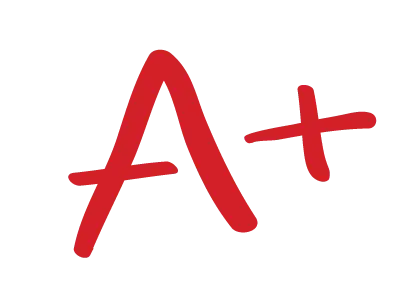The Donohoe Method
If your system works for you, great. But if you want some stream-lined ways to approach essay writing, here you go:
WRITE THIS ESSAY FOR ME
Tell us about your assignment and we will find the best writer for your paper.
Get Help Now!Part 1: The introductory paragraph
First problem: why are you starting here? I know it seems logical to start at the beginning, but I’m telling you STOP IT! How can you start an essay in which you don’t even know yet what the heck you’re arguing? It’s like starting to cook dinner when you don’t even know what recipe you’re going to use, or ingredients, or who is allergic to bacon wrapped Twinkies. First, figure out what you are trying to say in your thesis AND body paragraphs. So go to Part 2: Writing a Thesis and Part 3: Body Paragraphs and then come return here.
…and welcome back! Now that you have a solid thesis and fleshed out your body paragraphs, it’s time for your opening.
The Opening Question: DON’T DO IT! Beginning with a question can work but it’s tough to do so effectively. The question has to be honest and engaging; it has to get the person interested without producing a clear immediate answer. Mostly, I find opening questions to be trite or mechanical. There’s nothing worse than a rhetorical question to open an essay.
Example: What if someone told you, you are not a human? Would you believe them or feel any less human then you did before? No, probably not. So what does it mean to be human?
Above, the writer gives a hypothetical question first. On its own, the question is okay. Possibly it could be developed towards a thesis. The second question is rhetorical (the writer even answers it to be clear)—don’t do this to your readers. The third question is so general that it has very little impact. So of the three, the first one is the only one with some potential, but, in my book, there are many ways to begin more effectively.
The Dictionary Definition: DON’T DO IT! This method is a cop-out. It’s just a way to fill space; it’s trite and boring, and it doesn’t lead you to a relevant starting point.
Example: Dictionary.com defines tragedy as “ adramatic composition, ofteninverse,dealing with a serious or sombertheme”. Aristotle was the prominent figure in dealing with tragedies.
** The quotation opening: DO THIS ONE! Some teachers discourage this sort of opening, but I think it can be done effectively. Your choice of quotation can come from inside the work (from the book, play or film you’re discussing) or from outside the work (i.e. rock song lyrics, famous author, etc.). Either way, the quotation must be 1) fresh and interesting (not a clichéd or overused statement) and 2) directly related to your thesis. Even trickier, the first sentence(s) of your paragraph must transition effectively from quotation to your subject matter and then the paragraph must move in the direction of your thesis. This is hard for me to quantify. Here’s an example:
THE PROMPT: Write an essay in which you discuss one or more of the villains in an interesting way. Do the villains actually perform an important (even good) function? Are the true villains something more than the obvious (Grendel, Morgan le Fay, The Joker, etc)?
Making a Dark Knight
“He who fights against monsters should see to it that he does not become a monster in the process. And when you stare persistently into an abyss, the abyss also stares into you.”
– Friedrich Nietzsche, Beyond Good and Evil
1 In Christopher Nolan’s film Batman: The Dark Knight, the villains Two-Face and the Joker do far more than simply oppose the hero. 2 They do more than merely murder or pillage or trick. 3They illuminate something about the hero. 4 The villains are, in fact, mirror images of Batman. 5 Two-Face is the reflection of the hero as he is, a man caught between two opposing systems of morality, while The Joker is what Batman will become . . . a man who truly recognizes the depravity of humanity and himself.
In the above paragraph, the quotation is used well to set up the thesis. Line #1 and Line #2 are basically the same thought. This is the transition between quotation and the specific subject matter (i.e. Batman). This transition primarily 1) introduces the subject matter and 2) sets up the linking idea (see next step). The transition is followed by the linking idea—a spin on the idea present in the quotation and a movement towards the related idea of the thesis. You can see this happening in lines #3 and #4. The thesis comes in line #5.
Thus, if we were to simplify the process it would look like this:
- opening quotation
- transition from quotation to specific subject matter of essay (and sets up linking idea)
- linking idea (connects quotation and thesis)
- thesis
Part 2:Writing a Strong Thesis Statement
Here’s a secret: as you write your essay, your thesis will change. Start writing your body with a good thesis, and 9 times out of 10 you will still get to a point in your essay where you realize “Hey, I’m not really talking about why Twilight has ruined civilization; I’m really saying that Harry Potter was responsible for Twilight—and that’s what ruined civilization!” You need to be open to all the discoveries you make through your writing—and then change your thesis.
And once you change your thesis, you’ll need to rewrite your body paragraphs too. Yeah, it’s a lot more work. But that’s the way writing works…you make discoveries, you change things which lead to more discoveries and then you have to change things again.
Your thesis is the overall focus of your writing. In an analytical essay, it is also your main argument. Remember: you’re not exploring a fact (e.g. “Flowers are plants”) or a straight-up personal opinion (“I like Shakespeare”). You’re providing an argument which will spark a debate…and you’ll take one side of that debate (“flowers are the root of all evil”).
If your argument is boring or easy to support then the essay will probably be a yawner. If your thesis is difficult to support (it takes a stance that can be refuted) then the essay has a better chance to be engaging.
Personally, I like writing that is rebellious. I think you do too. We like the essay that goes against conventional ideas. When it comes to literature, don’t fall into the trap of echoing what everybody else says about a poem or novel; do just the opposite.
Here’s an example from a freshman writer responding to a prompt about Romeo and Juliet. The question was “who is responsible for the tragedy?” His thesis was Friar Lawrence actually sets out to kill the two young lovers, and he completely gets away with his crime.
This student was not a strong writer, but this thesis was the most interesting I’d seen all year. Do you see why? It’s original, and, more importantly, it takes a huge risk (actually, I think being original and taking risks go hand in hand); it goes against all conventional ideas about this play (that the lovers themselves are to blame, that “fate” is the culprit, etc.). When I first read this thesis, I perked up; I wanted to read the essay. Note: the writer did not provide convincing evidence but I was so interested in the idea that I didn’t mind. I kept thinking…what if Friar Lawrence was a serial-killer? That would be cool.
To this end, here’s a pattern you can follow: find an established opinion and set up your thesis to refute that. What this might look like:
Most people look at [insert your subject matter] as [here, insert the “conventional” view of the subject matter] ;however, if you look closely at [the poem, novel, film, etc] it’s clear that [insert your thesis here]. Use a variation of this pattern to create a thesis that is rebellious.
Example #1: Most readers would blame the lovers, fate or just bad luck; however, if you look closely at the play it’s clear that Friar Lawrence actually sets out to kill the two young lovers, and he completely gets away with his crime
Example #2: Animal Farm was meant to be viewed as a criticism of communist Russia; however, upon close examination the novel can be better seen as a condemnation of American values.
Also, make your thesis concise. It can be more than one sentence. It can even be more than two sentences. But the wording needs to be clear, specific—and all fluff needs to be cut away. Don’t use flowery, smart-sounding words to try and sound smart. State your case…simply.
To sum up: your thesis needs to be:
1) concise
2) an argument (not a fact or personal opinion)
3) an argument that takes an original, risk-taking stance (that is, it could be refuted)
Introducing our Online Essay Writing Services Agency, where you can confidently place orders for a wide range of academic assignments. Our reputable homework writing company specializes in crafting essays, term papers, research papers, capstone projects, movie reviews, presentations, annotated bibliographies, reaction papers, research proposals, discussions, and various other assignments. Rest assured, our content is guaranteed to be 100% original, as every piece is meticulously written from scratch. Say goodbye to concerns about plagiarism and trust us to deliver authentic and high-quality work.



